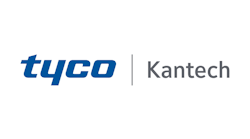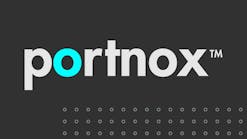In the conventional world, systems integrators focused on the time-honored traditional model of access control are often limited by the size of their client’s server that supports it, the current version of the customer’s operating system and the reliability and accuracy of their back-up plan.
In the cloud, these issues disappear. Have a customer who needs to control 10 doors, 100, maybe a couple thousand? That’s all possible in a cloud-based application, where capacity is rarely an issue. Similarly, those integrators who opt to offer a managed, hosted or hybrid access control platform are ensured that their customer’s basic but critical maintenance, such as regular back ups and software upgrades, are performed because those integrators are hosting the data on their own secure, cloud-based servers.
That’s important because the majority of end-users are woefully undertrained when it comes to system updates and back-up processes; in fact, nearly 90 percent don’t perform regular backups, risking the loss of data and the likelihood of a lengthy service call to their integrator, who will be tasked with rebuilding the system when it crashes.
So, rather than focusing on keeping the system up-to-date and in working order, systems integrators who offer cloud-based services in the access control world can now shift their concentration to how best to interface with this system and make it work for them.
The hosted model
In the hosted setup, the Managed Services Provider (MSP) hosts the servers, while the administrator handles the other functions, such as issuing cards or setting access levels. With a fully managed system, all security needs, including hosting, administration, maintenance and ongoing management of the system is outsourced. Systems integrators with customers who are looking to retain some hands-on control of their system but who are not equipped to handle full system management have the flexibility to offer their client a custom or hybrid solution (consisting of different levels of control) that meets their needs.
One of the greatest developments within the past few years has been the creation and growth of the mobile application. Via Android and Apple smartphones or tablets, it is now possible to perform the same functions that used to take place in front of the computer screen. With mobile apps, security professionals can execute tasks within the access system such as controlling doors, elevators, inputs and relays; updating and managing the card database, including adding and deleting individuals and updating photos, generating reports, and viewing event history.
Additionally, with the help of new web-delivered applications, customers can connect using a web browser, which eliminates worries about updating software and investing in the labor to do so.
The focus is no longer on hardware and making sure the infrastructure is there to support necessary tasks; instead, the shift is to applications and making them as feature-rich as possible. Companies are stepping away from the hardware and concentrating on the various ways, through the use of mobile devices, that they can handle important functions and also make better use of each person’s time. Administrators have already been liberated from the burdens of maintaining hardware, training staff, updating databases and the like. Now, they can focus on reaping the benefits of portability and scalability from web and mobile apps.
Operating in the cloud may bring with it some concerns about the security of the data, but with the high levels of encryption that are used, these information security issues are easily addressed. With those assurances in place, security directors can turn their attention to the benefits, starting with reduced infrastructure expenses — no need to invest in the latest PCs and software as everything resides in the cloud — and continuing with lower manpower, maintenance and training costs.
Greg Harman is hattrix Sales Manager, North America for Kantech, part of Tyco Security Products. He can be reached at [email protected]. Request more information about Kantech at www.securityinfowatch.com/10214152.



